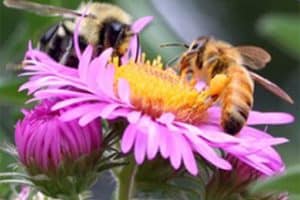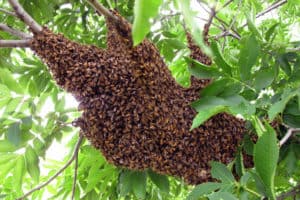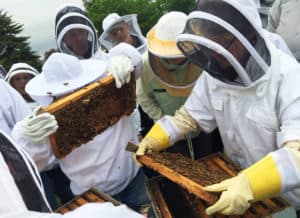Resources
Information on Bees
Unfortunately for our honey bees, any kind of bee, wasp, or hornet is often referred to as a bee, especially when you are being pestered, bitten or stung. The bee that is kept for producing honey is a very docile bee from Europe or Russia, while several of the imposters give them a bad name by being aggressive or visiting our backyard picnics. Honey bees will sting only to protect their hive from threats or when being squished.
Read More...Honey bee swarms are not dangerous, but they do need to find an appropriate home. Beekeepers can help by collecting the swarm. If you see a swarm of honey bees, it’s important to report it as soon as possible. Call Bob Sitko at 651-436-7915. He will try to find a beekeeper who can remove them.
Read More...Information on Beekeeping Groups in Minnesota
Read More...Links
Bee Information & Identification
- Marla Spivak: Why Bees Are Disappearing (video)
- University of Minnesota Bee Lab
- Free Bee Information
- Penn State Entomology
- The Xerces Society
- Resources from Ohio State University Bee Lab
- Bee Identification from Ohio State U and Pollinator Partnership
- Building and Managing Bee Hotels for Wild Bees from Michigan State University
- Learning Center - beekeeping, wild bees, gardening, bee issues from Pollinator Partnership
Beekeeping
- American Beekeeping Federation
- Model Beekeeping Ordinance
- Minnesota Honey Producers
- Gary Reuter's Website
- Colony Collapse, Climate Change and Public Health Explained
Bee-friendly Gardening
- Lawns to Legumes Program: Creating Habitat for MN Pollinators
- Bee Lawn Brochure - PDF
- Bee Lawn Installation and Maintenance - PDF
- U of MN Bee Lab Bee Lawn page
- U of MN Extension Bee Lawn page
- Guide to Flower Pollination
- North American Nectar Sources for Honey Bees
- Landscaping with Native Plants
- Prairie Restorations, Inc.
- Prairie Moon Nursery
- Morning Sky Greenery
- Minnesota Native Landscapes
- Food not Lawns
- Beverly Bees
- Mother Earth Gardens
- Egg Plant Urban Garden Supply
- Pollinator Friendly Alliance
- Canadian Pollinator Partnership



